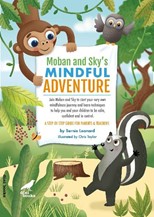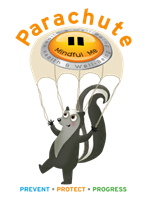Stepping out of autopilot and a cortisol fuelled existence and embracing every aspect of reality has truly transformed my life. Prior to finding mindfulness and beginning the practice I worked as part of the senior leadership team in a large, tough inner city secondary comprehensive school, a school located in one of the most deprived areas in the UK. In my last year at the school, I saw both colleagues and pupils present symptoms of stress. On reflection my SNS (sympathetic nervous system) was constantly triggered, and I could only plot myself at the extreme end of the stress-performance curve.
Most days I maintained a positive external relationship with both students and staff, but internally my thoughts were often negative and often inaccurate. Some days I just about managed to keep myself together whilst holding agenda driven discussions with people at all levels of the organisation, but once the office door was closed, I found myself in a sorry heap at my desk.
After doing 12-hour days I regularly arrived home frazzled, conversations with both friends and family were dominated by work, and the next Ofsted visit. I found it difficult to remember what friends and family had said during a conversation and I found myself sending constant reminders to myself just to remember the basics. I truly was a remarkable actress and my decision to leave the school came as a massive shock to all across the organisation. My loved ones simply rejoiced!
How mindfulness really did change my life.
I write this article almost a year after I made the tough decision to leave and I feel a warm glow throughout my body. Through self-reflection and studying mindfulness and compassion I have come to recognise that being in the present, stopping the constant negative rumination and appreciating the small things in life enables us to be fully aware, not just of ourselves, but of all we come into contact with. By being aware and allowing the PNS (parasympathetic nervous system) to take a major role in my life I am now in a position to have open, enriched conversations, where instead of dominating the conversation I often just set my intention to whole-heartily listen to the other person. Yes, set my intention, I’m on a journey, but I’m not quite there just yet.
As I look back, I can see that my distorted negative thoughts fuelled conversations with friends, and we would both find ourselves getting embroiled in a downward spiral. Conversations held with close family members often became quite heated as I projected my low mood and toxic nervous energy onto my nearest and dearest. Emotional reactivity has been replaced with mindful pauses and an ability to start regulating my emotions. Yes, there are relapses, but these are now relapses and not the norm.
I’m a great fan of the 3-step breathing space, it gives me the space I need to respond mindfully in potential stressful situations. Just simply grounding my feet and taking a breath is often all I need to avoid being reactive, which I find diffuses the most difficult of conversations.
Introducing self-reflection and compassion into my toolbox for life has been truly enlightening. As I let go of past negative relationships and bring my awareness to what that person might have actually been going through at the time, I’m healing. Being compassionate to others throughout everyday is actually helping me to avoid having those negative relationships in the first place.
To truly cultivate mindfulness both in ourselves and others I now accept will take years, it’s a journey, but I’m going to enjoy the ride. Before embarking on the mindfulness voyage, I would never have got into the car or cooked a meal without the latest tunes blasting, now I feel life is my signature tune. I still appreciate listening to music when friends are over or when the children are in the car, but much to their dismay I’d prefer a mindful conversation.
Taking my daughter shopping has changed dramatically as now I take the time to control my responses and overall behaviour, patience is most definitely a virtue I’m starting to develop.
Mindfulness and Compassion go hand in hand.
Reading research on ‘Self-Compassion’ has been pivotal and thinking ‘is that kind?’ is a wonderful way to question our behaviour both to ourselves and to others. This has really helped me develop self-compassion, that and the wonderful Kirsten Neff from Self Compassion.
When reflecting on my practice, the major turning point for me was incorporating 30 minutes of mindful walking into my day whilst on holiday. Before mindfulness I would never have got up at 7.30am every morning on holiday and gone for a walk. A walk without headphones, just simply to appreciate the surroundings! This simple change has been transformational both physically and mentally. I now walk every morning for at least 30 minutes, and I’ve promised myself to do my upmost to incorporate this into my daily routine no matter how hectic life may get. Walking gives me time to be self-compassionate, it’s time for me, and it gives me time to be present, to just simply observe life without making a judgement. It’s also developing my resilience; I actually feel an inner strength and it sets the tone for a calmer day ahead.
Being self-compassionate and giving myself time to practice and develop my mindfulness skills is not only enriching my life, but my relationships with everyone around me. I even find myself questioning my own thoughts; is that kind? Could there be an alternative explanation? Being less judgemental, setting my intention to be kind and appreciating all I have in life are all fruits of mindfulness and on reflection I can now see the seeds of this fruit dispersed throughout my relations with others.
Using all I learnt on the IMC Qualification to influence health and well-being in the education sector.
After successfully graduating from the Integrated Mindfulness and Compassion Qualification by MindfulnessUK in October 2017, as a qualified teacher of mindfulness and compassion, I was on a mission to fully utilise all the skills I’d acquired from over the last two decades in the world of education and devise a comprehensive ‘Mindfulness for Life Tool Box’.
Mindfulness has truly transformed my life and I felt ready to share the fruits of the practice with organisations, individuals, and schools in order to alleviate the negative effects of stress and improve emotional health and well-being.
Practising mindfulness, not only gave me the confidence to set up my own company, Mindful Me Health and Well-Being, but also unleashed within me a creativity, enabling me to craft a programme (which became known as my Mindfulness For Life Tool Box) that was accessible and impactful for people.
Up until March 2020, I supported individuals, through Mindful Mates (a programme I designed for couples and small groups of friends), Organisations and Schools to cultivate their very own skills of mindfulness. The impact of the practice has been so far reaching, from enabling an amazing Y11 student to take control of her anxiety to such an extent she felt empowered to return to GCSEs and achieve success in every single one of them, to a new mum using her newfound skills to completely take the heat out of the bedtime routine, which resulted in a calm, happy baby and an even calmer, happier mummy who was no longer sleep deprived.
Bringing mindfulness into the workplace has enabled colleagues to step off life’s merry-go-round, creating time for them to plan and prioritise and allowing them the space to respond rather than react, which has led to healthier and more effective relationships.
The biggest impact of mindfulness was when teaching children.
I saw mindfulness having the biggest impact whilst I was teaching children in Y5 & 6. They not only religiously practised their techniques each week and completed their investigation journals, but in many cases, they also got their whole family involved.
The weekly feedback sessions were filled with fascinating applications of the STOP practice and the 3-Step, and tales of how the techniques had helped avoid playground altercations. This also led to others opting for mindful family discussions opposed to their daily technology fix. I’d read the research on the benefits of the practice for the education sector but seeing it first-hand and hearing how they put their techniques into practice whilst preparing for one of their biggest transitions in life was truly remarkable.
Hearing the children speak so maturely and with passion about ways in which they can stay calm and focussed and being greeted by their teachers’ feedback on how their concentration levels had improved was music to my ears.
Many people have asked me – What was the catalyst for my book? These moments described above were the catalyst. I felt compelled to reach out to even more primary schools to share with them the power of mindfulness to, ultimately, increase social mobility, by supporting young people and the people who care for them to become mentally stronger.
However, when I wrote the script in February 2020, little did we know what was just around the corner. With the lockdown restrictions initially putting a halt to my delivery I pressed fast forward on my book!
Seeing the importance of mindfulness for children led me to writing a book and creating the Parachute Project.

Moban and Sky, written by Bernie Leonard
Moban and Sky’s Mindful Adventure, is an illustrated guide with a series of seven mindfulness techniques. The book is specifically designed for parents and teachers to support children at home and in the classroom, helping primary aged children become more calm, confident and in control of their emotions.
This new book also forms part of a wider education project called ‘Parachute’ which I put in place to support primary schools across the UK to promote positive mental well-being in children. The programme enables pupils to have a very strong understanding of how to recognise and deal with mental health problems such as stress. It also offers pupils strategies and support to protect their own mental health and develop their resilience.
Parachute, which can be delivered as part of the PSHE curriculum, equips teachers with an imaginative resource which secures pupil’s’ interest and active participation. The package includes, a short-animated film, a series of videos, a class set of the book and downloadable, time saving teaching and learning resources. A nominated teacher will also receive online training from me, to support the programme.

You can take a sneak peek at my animation to support the book and the primary programme here.
As I sign off in May 2021, my ten fingers of gratitude are almost worn out, over the last year I’ve seen my book being published, my characters come to life in an amazing animation and over the last week ‘Moban and Sky’ have appeared in three classrooms across the UK and are already starting to make a positive impact on the well-being of our young people, as part of my Parachute Project.
To find out more about a career in mindfulness go to www.mindfulnessuk.com
